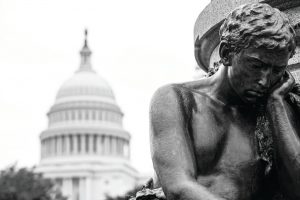State of the Union…. Do You Trust Your Politicians?

With two federal by-elections now in the books and electing two Liberals by a slim margin, with still election wins by the Liberals…the question in my mind is…
Can the Liberals do no good?
When you see these election wins when in fact the Liberals should have been dumped big time and no change, you start to wonder about where politics and politicians are in this era.
In fact, you start to wonder where the general population is when it comes to being informed and can we make an educated decision on who could run this country and alternatively our provinces and cities.
For me and many folks that l know these days, when it comes to politics and the process…I have no confidence or trust in our system and those that are elected to run it.
For decades, scholarly inquiry into political trust has been motivated by concerns about declining levels of public trust in politics. Because political trust is considered a necessary precondition for democratic rule, a decline in trust is thought to fundamentally challenge the quality of representative democracy.
Fundamentally, political trust can be understood as citizens support for political institutions such as government and parliament in the face of uncertainty about or vulnerability to the actions of these institutions. While political trust is conventionally treated as a pro-democratic value, its absence is not evidently detrimental to democracy. Rather, skepticism stimulates political engagement and signals a willingness to judge political institutions by their own merits.
In cross-national comparisons political trust is consistently highest in countries that are not considered liberal democracies. Within the set of liberal democracies, the Nordic countries tend to have the highest trust rates, while the former communist countries in Central and Eastern Europe have the lowest. Despite evidence that political trust declines in many longstanding democracies in the 1960s and 1070s, the last few decades are characterized by trendless fluctuations in most countries.
While many scholars have made great headway in understanding the sources of political trust-most notably corruption, procedural fairness, economic performance, inclusive institutions, and socialization seem to be behind not trusting our politicians.
Does political trust matter?
Our politics are polarizing, and divisive, negative partisanship is on the rise, and people seem to be gradually retreating into their own information bubbles, only consuming information that reinforces their point of view. We are witnessing a global rise in populism and the reputation of liberal democracy has taken a hit. And attempts to reduce polarization, carried out most prominently by people like Obama with George Soros supporting the cause financially.
These mixed signals that keep going out to the public are very confusing and have many people turned off by the process. This style of governance is one of the major reasons why people are turned off with politics and the political process. The average person is so busy just trying to make a living and trying to keep some sort of normalcy going in their lives, that all these political shenanigans are a turn off and interest gets lost in voting and thus the governments in power keep getting re-elected.
When you have a decline in trust with our politicians and the system, it leads to lower rates of compliance with rules and regulations. Trust in government by citizens and businesses is essential for the effective and efficient policy making both in good times and bad. Investing in trust should be considered as a new and central approach to restoring economic growth and reinforcing social cohesion, as well as a sign that governments are learning the lessons of the crisis. Trust is the crucial trait in the system and our elected official, and if you don’t have that you lose interest and that leads to the population not voting. This ultimately hurts all of us and the controlled radicals win out.
Trust in government represents confidence of citizens in the actions of a government to do what is right and perceived is fair. Voters are key to their trust in government, and as citizens become more educated, their expectations of government performances rise. If voters’ expectations rise faster than the actual performance of government, trust and satisfaction could decline. These changes in expectations may explain more of the erosion of political support.
The percentage of Canadians who trust the current election system to adequately represent the voters is dropping like a lead balloon. Canadians believe their elected representatives are not accountable and don’t pay attention to what they think.
Better government is what we want. The current process is unethical, dishonest and secretive, which means politicians are more likely to make decisions that are bad for the average Canadian while favouring corporate interests. Regardless of what you think, if trust is not there, it becomes a banana republic.
Vincent Black/MS







Redes Sociais - Comentários